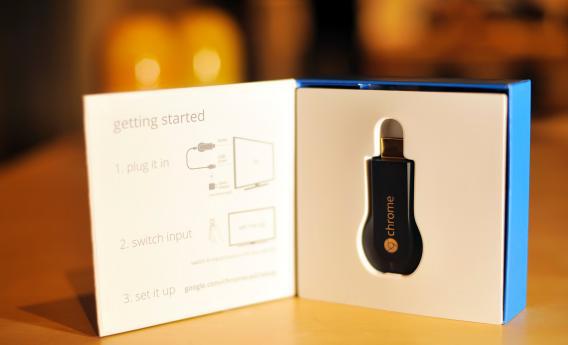This post previously appeared on Business Insider.
By Steven Tweedie
The most exciting reveal from Google’s event yesterday was its new streaming device, the Chromecast. It’s a little “dongle” that plugs into the back of a TV’s HDMI port, giving users the ability to wirelessly stream content from their computers and devices to their TV.
While its primary use will likely be with apps integrated with a Chromecast “cast” button, Google also announced that users can mirror anything playing in its Chrome browser, too. This opens up the floodgates, allowing anything viewable on the web to be ported over to a user’s television set.
TV executives, who are notorious for drawing a line in the sand dividing web content and television content, can’t be happy the Chromecast blends the two mediums together. Peter Kafka of AllThingsD offers Hulu Plus as a prime example. Right now, Hulu differentiates between its web streaming service and its TV streaming service. While you can watch plenty of Hulu’s content for free online, the ability to watch Hulu content on a TV requires a Hulu Plus subscription.
Hulu says they are developing an app for the Chromecast, but it’s a practically useless endeavor. The Chromecast merges the two media, sidestepping the need for standalone apps, and this could quickly cause content providers and the TV executives they work with to become angry. And if they get mad enough, Kafka writes, content providers could bar their websites from working with the Chrome browser. Highly unlikely, but possible.
If enough fuss is made over the device, the Chromecast could potentially hamper Google’s relationship with TV executives, a risky move if Google wants to compete with Apple’s rumored television set. Time will tell if the Chromecast truly has the power to affect change in the streaming industry, but it certainly has the potential.
